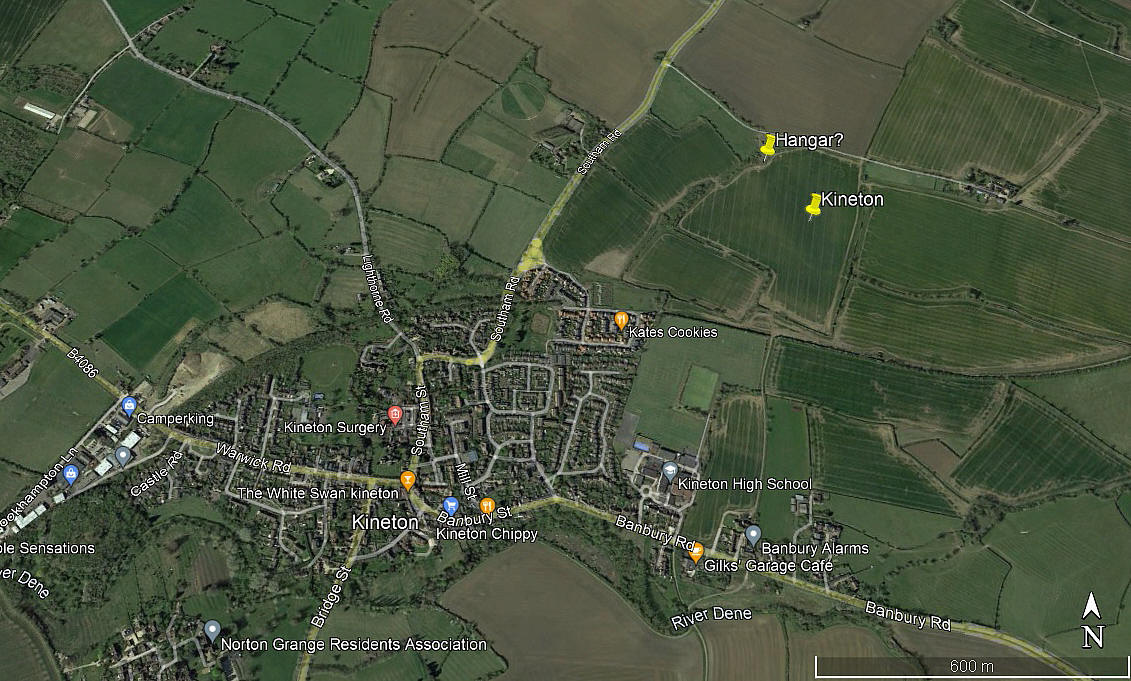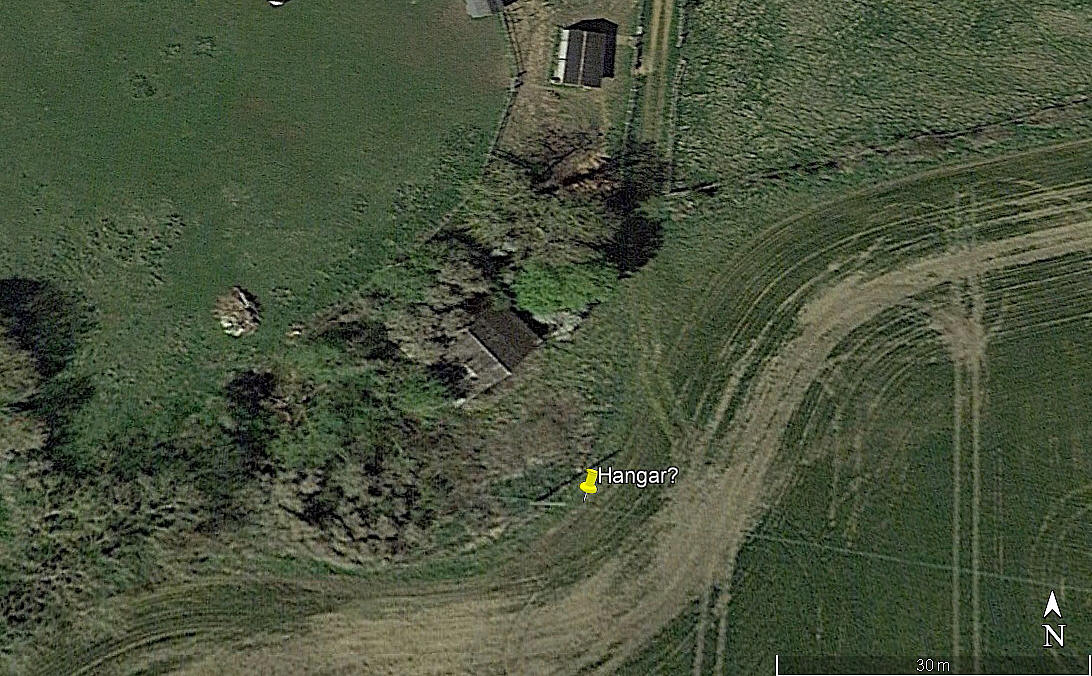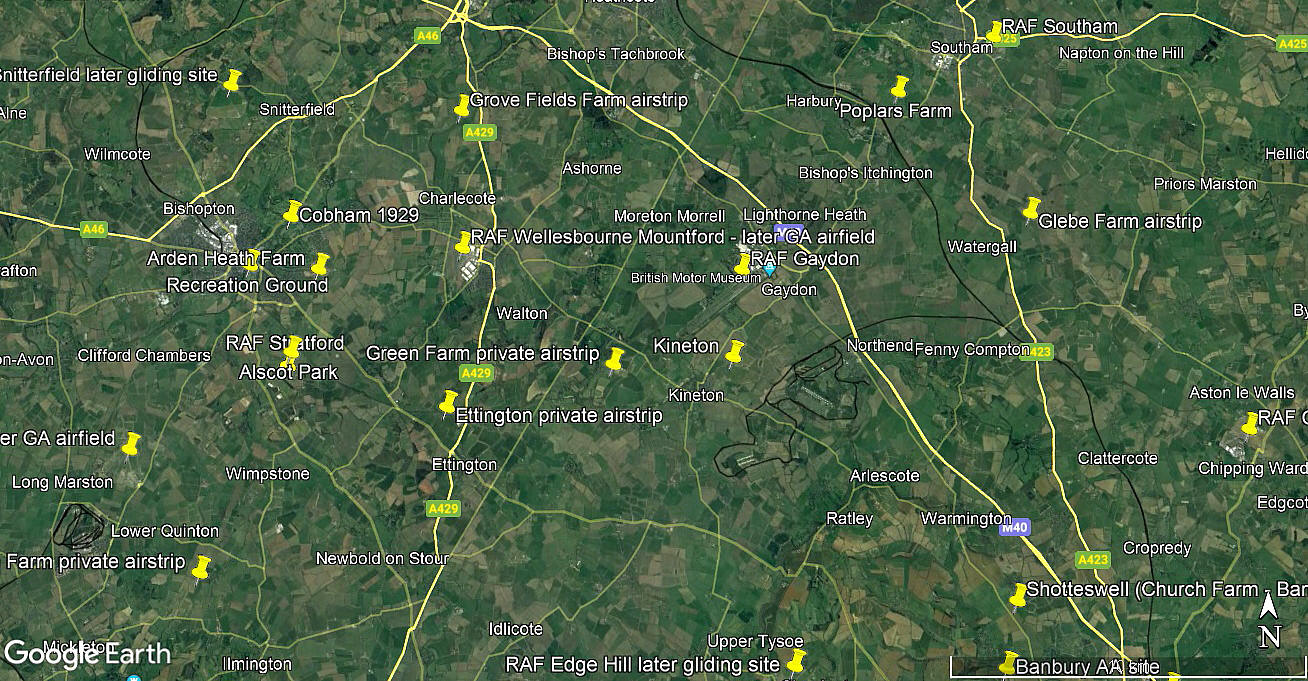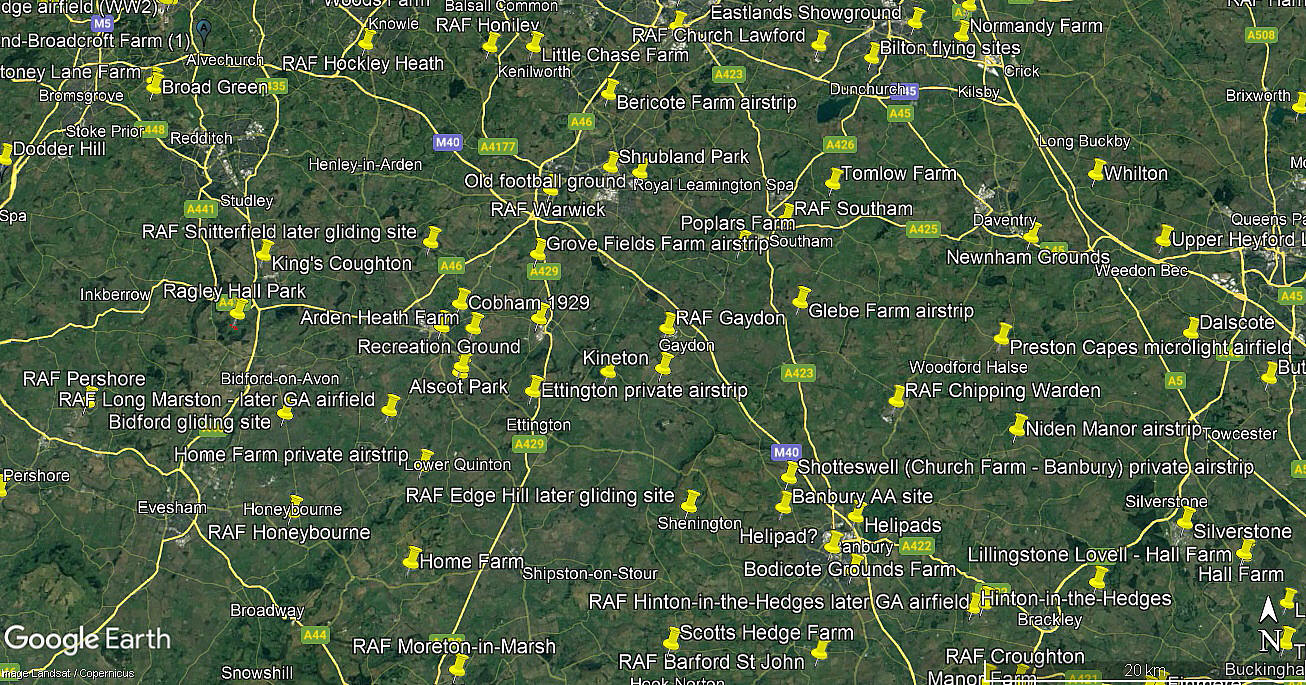Kineton
KINETON: Private Civil Landing Ground
Note: The first two pictures were obtained from Google Earth ©. The local area view and area view are from my Google Earth © derived database. It is reported that one of the original hangars still exist - but is it this one - seen in the second picture above?
Operated by: Lord Willoughby de Broke
Location: “0.75m NE of village, E of B4451”, 6nm ESE of Stratford-upon-Avon
Period of operation: 1930s only?
Runway(s): Max landing run: 338 grass
NOTES: Listed in the 1930s ‘AA Landing Grounds’ publication as an AA (Automobile Association) approved Landing Ground. This site had two hangars in 1933 but it is not known if these were available for use by visitors.
Fuel and transport (usually a taxi service) was available from the Kineton Service Garage and the nearest telephone was in Chadshunt Hall.
SOMETHING TO BE APPRECIATED
It needs to be appreciated that the vast majority of private aeroplane owners in the 1930s, (there were considerably fewer in the 1920s), invariably came from the upper classes. It is often the impression given by many that when the “affordable” and “easy to fly” de Havilland DH60 Moth appeared in 1925 it greatly encouraged many more people to start flying. It certainly encouraged more people from reasonably wealthly middle-class families, such as Amy Johnson for example, to join a Flying Club to learn to fly.
But the price of a Moth, (which stayed the same from at least 1925 to 1930), was £650. Against this an average figure of a shilling an hour for a fifty hour week appears to be a reasonable benchmark for both skilled agricultural and industrial workers and this equates to annual earnings of around £130.
Was is certainly true is that the 'relative' affordability of the DH60 Moth and a few other types did allow many flying clubs to get started but here again the majority of members would have been ‘well-healed’ middle-class types.
I think I can possibly hear some younger readers, interested in British history saying something like, “Oi mister, the 1930s was the time of the Great Depression, so what’s this all about?” The simple fact of life is, very generally speaking, the state of the economy and the financial markets has little effect on those with wealth and influence.
Just to give one example, when the starving Jarrow marchers set out on foot for Westminster in October 1936, the most luxurious British flying boat ever, the Short C Class, the first of the ‘Empire’ flying boats, had flown for the first time on the 3rd July 1936.
MORE INFO
In 2023 Mr Graham Frost, a great friend of this 'Guide' tells us that he knows of three aircraft owned by Lord Willougby de Broke that were based here. These being G-ACMZ, G-ADES, and G-AEOU.
G-ACMZ was a British-Klemm L25C Mk.2 Swallow. Registered here from22.01.34 until 01.03.39.
G-ADES was a B.A. Eagle II, a three-seater version. Registered here from 29.05.35 until February 1936. This then going to Switzerland as HB-DES.
G-AEOU was a Fairchild 24C8-F Argus. A much more practical touring type, registered here from 09.11.36 until 14.10.40. Being impressed into military service as BS817. Presumably going to the RAF?
Another aircraft noted for being here was the B.A. Double Eagle Mk.IV G-AEIN. No doubt a result of making a friend of the owners based at HANWORTH in south west London where British-Klemm, later called the British Aircraft Manufacturing Company, (B.A.).
We'd love to hear from you, so please scroll down to leave a comment!
Leave a comment ...
Copyright (c) UK Airfield Guide



















